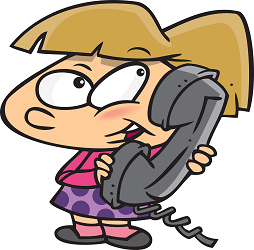Interrupted Quotations
(Also Called Divided Quotations)
Quotations are used in writing to tell the reader that someone is speaking.
Click Here for Step-by-Step Rules, Stories and Exercises to Practice All English Tenses
Sometimes a writer needs to interrupt or divide a quotation.
In interrupted quotations, the speaker tag comes in the middle of the quotation and in the middle of the sentence.

The speaker tag is the part of the sentence that tells the reader who is talking.
Examples of speaker tags:
- he said
- the boy stated
- exclaimed Mary
- the teacher explained
- asked Bill
First, let us look at some regular quotations with speaker tags.
Here is a regular quotation with the speaker tag at the beginning of the quoted sentence.
My brother said,
"I need the car today, so I can go to work."
Here is another regular quotation with the speaker tag at the end of the quoted sentence.
"When you do your math homework tonight, remember to show all of your work," explained the teacher.

We can make both of these sentences into interrupted quotations by putting the speaker tag in the middle of the quoted sentence.
"I need the car today," my brother said, "so I can go to work."
"When you do your math homework tonight," explained the teacher, "remember to show all of your work."
Rules for writing interrupted quotations:
1. Use quotation marks around both parts of the interrupted quotation
Examples:
- "The
book,"
whispered the librarian, "is on the second shelf by the
wall."
- "When
Mom comes home,"
my sister said, "tell her I'm going to Sandy's house."

2. Quotations are separated from the speaker tag with commas
A) For the first half of the quotation, put the comma inside the quotation marks
B) For the second half of the quotation, put the comma after the speaker tag
Examples:
- "Did you know," asked the teacher, "that salamanders are
amphibians?"
Notice that the first comma is after the word "know" and inside the quotation marks.
The second comma is after the word "teacher" and before the second set of quotation marks.
- "My love," swooned the man, "will you marry me?"
Notice that the first comma is after the word "love" and inside the quotation marks.
The second comma is after the word "man" and before the second set of quotation marks.

3. Follow normal capitalization
rules
A)
Capitalize the first word in the
sentence
Examples:

- "Your
dog ran out the door," she said, "because you left it open."
- "My husband took me out for my birthday, "Mrs. Smith exclaimed, "and then gave me new earrings!"

B) The second half of the quotation does
not begin with a capital letter, unless it is a proper noun or title
Examples:
- "Please tell your parents, "the man on the phone said, "Amy
will be
there at 5:00."
In this sentence, "Amy" is capitalized in the second half of the quotation because it is a name and a proper noun.
- "Students," Miss Smith instructed, "please
line up at the door."
In this sentence, "please" is not capitalized because it is not a proper noun or a title.
"Miss Smith" is capitalized because it is a proper noun.
4. End punctuation goes inside the final quotation marks
Incorrect:
- Did you know," asked Mrs. Jones, "that the sunflower is the state flower of Kansas"?
- Did you know," asked Mrs. Jones, "that the sunflower is the
state flower of Kansas?"

Incorrect:
- "When your brother gets home,'" my dad yelled, "tell him I need to talk to him in my office"!
- "When your brother gets home,'" my dad yelled, "tell him I
need to talk to him in my office!"

These were the rules of Interrupted Quotations. Now that you know them, it is time to practice! Get our ESL Books.
Get Updates, Special Offers, and English Resources
Download your FREE GIFT (the first two chapters of
English Short Stories Book and Workbook)
as soon as you join!

By submitting your email, you consent to receiving updates and newsletters from us and to the sharing of your personal data with third parties for the purposes of sending you communications. We will not spam you. You can unsubscribe at any time. For more information, please see our privacy policy.
Return from Interrupted Quotations to Learn to Write English





